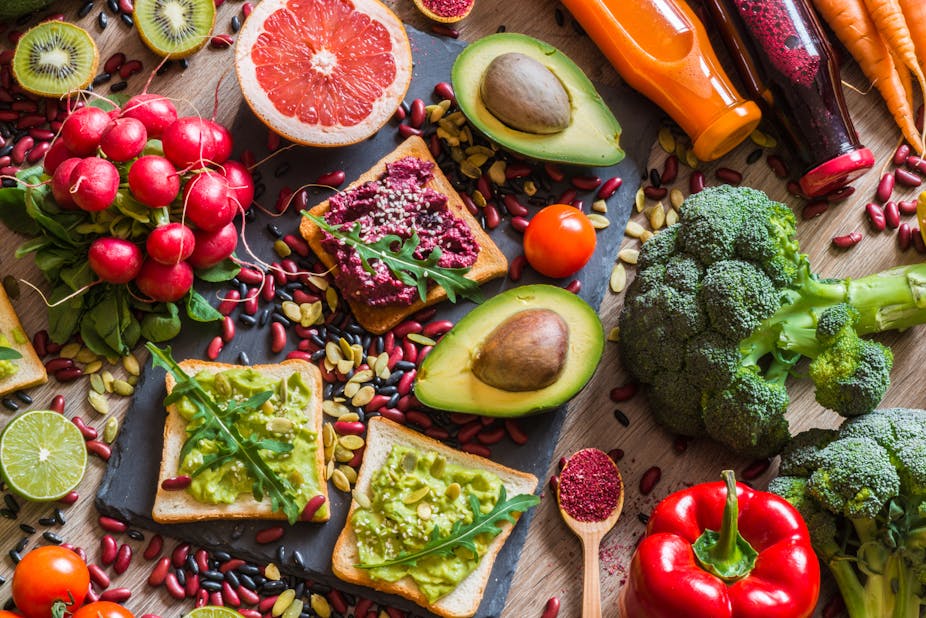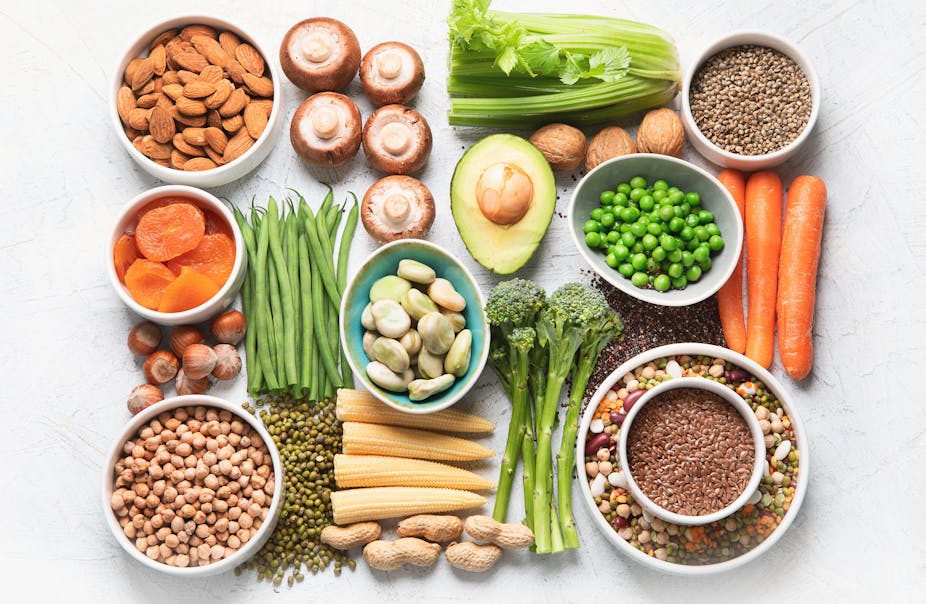What is a vegan diet?-A guide to get you started
Veganism is a method of living that endeavors to prohibit all types of animal abuse and cruelty, in all aspects like for food, dress, or some other reason. Thus, the vegan diet is without all animal items, including meat, eggs, and dairy. Individuals decide to follow a vegan diet for different reasons. These normally range […]


Veganism is a method of living that endeavors to prohibit all types of animal abuse and cruelty, in all aspects like for food, dress, or some other reason. Thus, the vegan diet is without all animal items, including meat, eggs, and dairy. Individuals decide to follow a vegan diet for different reasons. These normally range from morals to environmental concerns, however they can likewise originate from a longing to improve wellbeing.
Various types of vegan diets

There are various assortments of vegan diets. The most well-known include
- Whole-food vegan diet: An eating routine dependent on a wide assortment of entire plant food varieties like fruits, vegetables, whole grains, legumes, nuts, and seeds.
- Raw-food vegan diet: A vegan diet dependent on raw fruits, vegetables, nuts, seeds, or plant foods cooked at temperatures below 118°F (48°C).
- 80/10/10: The 80/10/10 eating regimen is a raw food vegan diet that limits fat-rich plants like nuts and avocados and depends principally on raw fruits and soft greens all things considered. Additionally alluded to as the low-fat, raw-food vegan diet or fruitarian diet.
- The starch solution: A low-fat, high-carb diet like the 80/10/10 however that spotlights on cooked starches like potatoes, rice, and corn rather than fruits.
- Raw till 4: A low-fat vegan diet inspired by the 80/10/10 and starch solution. Raw food varieties are devoured until 4 p.m., with the choice of a cooked plant-based meal for dinner.
- The thrive diet: The thrive diet is a raw food vegan diet. Adherents eat plant-based, whole food varieties that are raw or insignificantly cooked at low temperatures.
- Junk-food vegan diet: A vegan diet lacking in whole plant foods that relies heavily on mock meats and cheeses, fries, vegan desserts, and other heavily processed vegan foods.
Vegan food options

Health conscious vegan lovers substitute animal items with plant-based substitutions, for example,
- Tofu, tempeh, and seitan: These give a flexible protein-rich option in contrast to meat, fish, poultry, and eggs in numerous plans.
- Vegetables: Foods like beans, lentils, and peas are great wellsprings of numerous nutrients and useful plant compounds. Sprouting, fermenting and proper cooking can likewise increase nutrient absorption.
- Nuts and nut butter: Especially unblanched and unroasted assortments, which are great sources of iron, fiber, magnesium, zinc, selenium, and vitamin E.
- Seeds: Especially hemp, chia, and flaxseeds, which contain a decent amount of protein and helpful omega-3 fatty acids.
- Calcium-fortified plant milk and yogurts: These assist vegan lovers with accomplishing their suggested dietary calcium admission. Opt for varieties also fortified with vitamins B12 and D at whatever point conceivable.
- Algae: Spirulina and chlorella are amazing wellsprings of complete protein. Different assortments are incredible wellsprings of iodine.
- Nutritional yeast: This is a simple method to expand the protein substance of vegan dishes and add an intriguing cheesy flavor. Pick vitamin B12-strengthened assortments at whatever point conceivable.
- Whole grains, cereals, and pseudocereals: These are incredible kinds of complex carbs, fiber, iron, B-vitamins, and plenty of minerals. Spelt, teff, amaranth, and quinoa are particularly high-protein alternatives.
- Sprouted and fermented plant foods: Ezekiel bread, tempeh, miso, natto, sauerkraut, pickles, kimchi, and kombucha regularly contain probiotics and nutrients K2. Sprouting and fermenting can likewise help improve mineral assimilation.
- Fruits and vegetables: Both are incredible food varieties to expand your nutrient consumption. Salad greens, for example, bok choy, spinach, kale, watercress, and mustard greens are especially high in iron and calcium.
Food varieties to avoid

Vegans don’t eat any animal food sources, just as any foods containing ingredients derived from animals. These include:
- Meat and poultry: Beef, lamb, pork, veal, horse, organ meat, wild meat, chicken, turkey, goose, duck, quail, and so on
- Fish and seafood: All sorts of fish, anchovies, shrimp, squid, scallops, calamari, mussels, crab, lobster, and so on
- Dairy: Milk, yogurt, cheese, butter, cream, ice-cream, and so on
- Eggs: From chickens, quails, ostriches, fish, and so on
- Bee items: Honey, bee pollen, royal jam, and so on
- Animal-based ingredients: Whey, casein, lactose, egg white albumen, gelatin, cochineal or carmine, isinglass, shellac, L-cysteine, animal-derived vitamin D3, and fish-derived omega-3 fatty acids.
Supplements to consider
A few vegans may find it hard to eat enough of the nutrient rich or sustained food sources above to meet their day by day necessities. For this situation, the supplements below can be especially advantageous:
- Vitamin B12: Vitamin B12 in cyanocobalamin structure is the most considered and appears to function admirably for the vast majority.
- Vitamin D: Choose D2 or vegan D3 structures, for example, those produced by Nordic Naturals or Viridian.
- EPA and DHA: Sourced from algae oil.
- Iron: Should just be enhanced on account of a reported deficiency. Ingesting a lot of iron from enhancements can cause unexpected issues and forestall the retention of different nutrients.
- Iodine: Take a supplement or add 1/2 teaspoon of iodized salt to your eating routine day by day.
- Calcium: Calcium is best absorbed when taken in portions of 500 mg or less at a time. Taking calcium simultaneously as iron or zinc enhancements may decrease their absorption.
- Zinc: Taken in zinc gluconate or zinc citrate structures. Not to be taken simultaneously as calcium supplements.
Advantages of being a vegan

- Vegan eats less carbs and hence appear to be successful at assisting individuals with diminishing the quantity of calories they eat, bringing about weight reduction.
- Vegan diets appear to be especially successful at improving markers of glucose control. They may likewise bring down the danger of creating type 2 diabetes.
- Vegan diets may improve heart wellbeing. Nonetheless, more great investigations are required before solid ends can be drawn.
- Vegans may profit by a 15% lower hazard of developing or dying from cancer.
- Vegan diets appear to be especially powerful at diminishing side effects of arthritis like agony, joint swellness, and morning stiffness.
- Diabetics who substitute meat for plant protein may lessen their danger of poor kidney work.
- Observational examinations show that parts of the vegan diet may help lessen the danger of fostering Alzheimer’s sickness.
A vegan diet is connected to a plenty of other medical advantages. Nonetheless, more examination is expected to decide causality.
Risks of vegan diet

- Those eating poor vegan diets are especially in danger of certain supplement lacks. In fact, studies show that vegans are at a higher danger of having deficient blood levels of nutrient B12, nutrient D, long-chain omega-3s, iodine, iron, calcium, and zinc.
- Vegans might be at an expanded danger of certain supplement lacks. An all-around arranged balanced vegan that incorporates supplement-rich whole and invigorated food varieties can help give satisfactory supplement levels.
This article What is a vegan diet?-A guide to get you started appeared first on BreezyScroll.
Read more on BreezyScroll.


